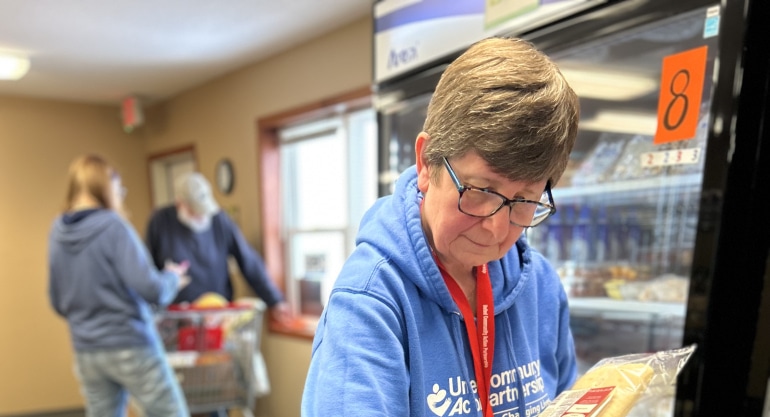
UCAP's Kitchen Table Serves Community in a New Way
The United Community Action Partnership’s Kitchen Table Food Shelf in Marshall may not have a line of people sitting inside its waiting room, but the amount of food leaving its shelves and going to assist people is quite extraordinary.
The Kitchen Table has a unique way of getting people the food they want and not forcing them to wait for hours. The nonprofit allows community members to call in, order what they want off a structured list allowing them to choose the foods they want instead of being forced to accept food they’ll never consume.
Once a person arrives, the food is selected quickly and taken out to their vehicle, there is very little wait time regardless of the number of participants.
“If they come by bus they’re on and off in minutes,” Community Resource Coordinator Margaret Palan said. “They’re not waiting around for three hours to get a ride back. They’re still going to get their choice of food. They’re eating healthier. There’s less anxiety. We love doing it this way. It’s so much nicer.”
Food insecurity is one of the top issues for people with low incomes.
“Without it, it would be tough,” said Bruce Perrin, who is a vegan, of the food he gets from the Kitchen Table. “The people here are absolutely wonderful. I’m not embarrassed to come here.”
Bruce said he is surprised by the variety of vegan offerings the Kitchen Table gives him each visit.
In the United States, 53 million people needed food assistance in 2021. To deal with the issue in parts of Minnesota, Pala oversees three other food shelves besides the one in Marshall for UCAP. The other three are located in Tracy, Westbrook and Heron Lake.
Each individual who comes to The Kitchen Table will leave with 30 to 40 pounds of food depending on their family size. The Kitchen Table also offers other types of assistance to families as well including learning about nutrition and learning to budget.
“We want to help,” Palan said. “We wat to get them out of the system. It’s not about the food. It’s about much more.”

